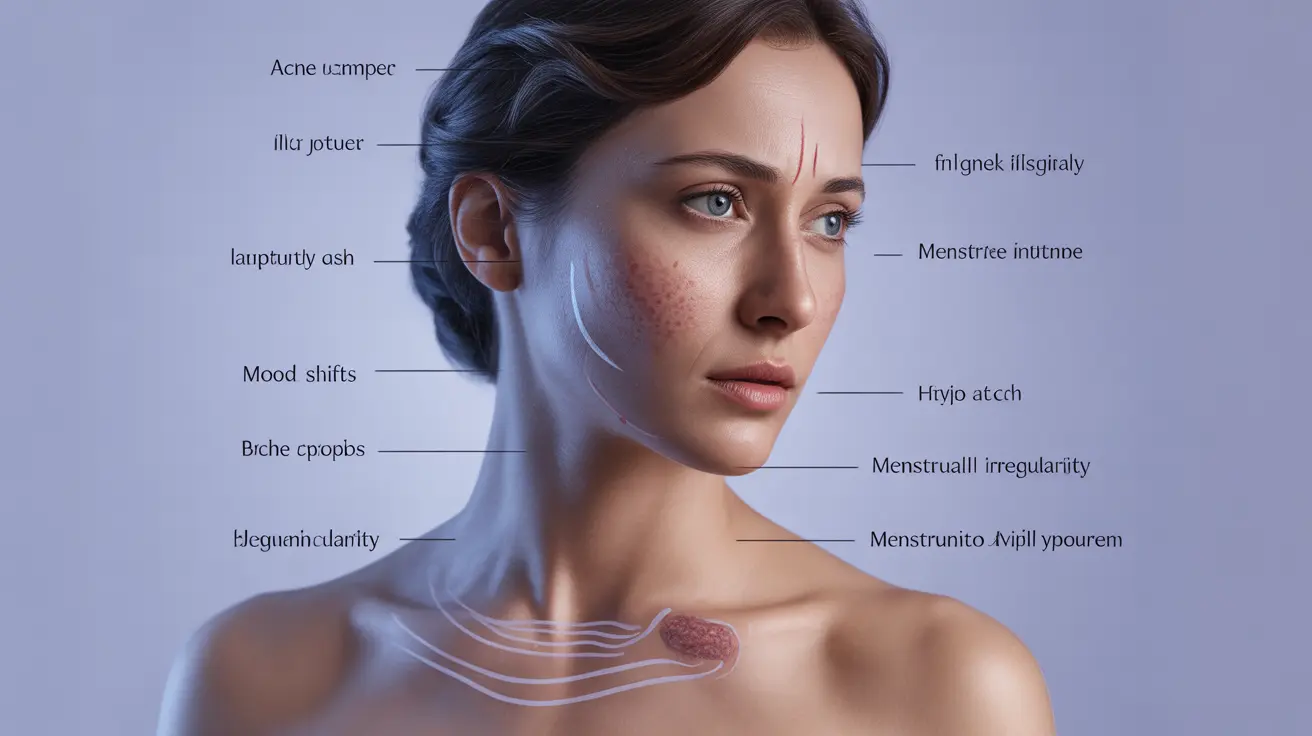Transitioning off hormonal birth control can bring unexpected changes to your body and emotional well-being. Post-birth control syndrome encompasses various symptoms that some people experience after discontinuing hormonal contraceptives. Understanding these changes and knowing how to manage them can help make the transition smoother and less concerning.
While not everyone experiences post-birth control syndrome, being prepared and informed about potential symptoms can help you better navigate this adjustment period. This comprehensive guide explores common symptoms, management strategies, and ways to support your body's natural hormone balance.
Common Symptoms and Duration
When discontinuing hormonal birth control, your body needs time to readjust to its natural hormone production. Common symptoms during this transition may include:
- Irregular menstrual cycles
- Acne breakouts
- Changes in mood
- Headaches
- Breast tenderness
- Changes in libido
- Heavy or painful periods
These symptoms typically emerge within the first few months after stopping birth control and can last anywhere from a few months to a year. However, everyone's experience is unique, and the duration can vary significantly based on individual factors.
Managing Menstrual Changes
One of the most common challenges after stopping birth control is dealing with irregular periods. Your body may take several months to establish a regular cycle. During this time, you might experience:
- Longer or shorter cycles than usual
- Heavier or lighter flow
- Changes in menstrual cramping
- Spotting between periods
Tracking your cycles using a period tracking app or calendar can help you identify patterns and predict when your cycle may normalize. If irregularities persist beyond six months, consult with your healthcare provider.
Emotional and Mental Health Impact
Hormonal changes can significantly affect your emotional well-being. Some people experience mood swings, anxiety, or depression after stopping birth control. Supporting your mental health during this transition is crucial through:
- Regular exercise
- Stress management techniques
- Adequate sleep
- Professional counseling if needed
- Support from friends and family
Physical Changes and Management
Weight fluctuations and hair-related changes are common concerns during post-birth control syndrome. These changes occur due to hormonal adjustments and usually stabilize over time. To manage these symptoms:
- Maintain a balanced, nutrient-rich diet
- Stay physically active
- Consider supplements (after consulting with a healthcare provider)
- Practice gentle skincare routines for acne
- Be patient with your body's adjustment process
Natural Support Strategies
Supporting your body's natural hormone balance can help ease the transition. Consider implementing these lifestyle changes:
- Eat foods rich in B vitamins and zinc
- Include plenty of fiber in your diet
- Stay hydrated
- Practice stress-reducing activities
- Get regular exercise
- Consider seed cycling
- Avoid endocrine-disrupting chemicals in personal care products
Frequently Asked Questions
What are the typical symptoms of post-birth control syndrome and how long do they last?
Post-birth control syndrome symptoms typically include irregular periods, acne, mood changes, and possible weight fluctuations. These symptoms usually last between 4-6 months, though some people may experience them for up to a year while their hormones regulate.
How do I manage irregular periods and other symptoms after stopping hormonal birth control?
Track your cycles, maintain a healthy lifestyle, and practice stress management. Focus on nutrition, regular exercise, and adequate sleep. Consider using period tracking apps and consult your healthcare provider if irregularities persist beyond six months.
Can post-birth control syndrome cause mood changes like depression or anxiety, and how can they be addressed?
Yes, mood changes are common due to hormonal fluctuations. Address these through regular exercise, stress management techniques, adequate sleep, and professional support when needed. Some people benefit from counseling or support groups during this transition.
Is it normal to experience weight changes or hair loss after stopping birth control, and what can I do about it?
Weight changes and hair-related issues are normal responses to hormonal changes. Focus on maintaining a balanced diet, regular exercise, and proper nutrition. Consider supplements under medical supervision, and give your body time to adjust naturally.
How can I naturally support my body's recovery from post-birth control syndrome through diet and lifestyle changes?
Support your body through a nutrient-rich diet, regular exercise, stress management, and adequate sleep. Include foods rich in B vitamins, zinc, and fiber. Consider seed cycling and avoid endocrine-disrupting chemicals in personal care products.




